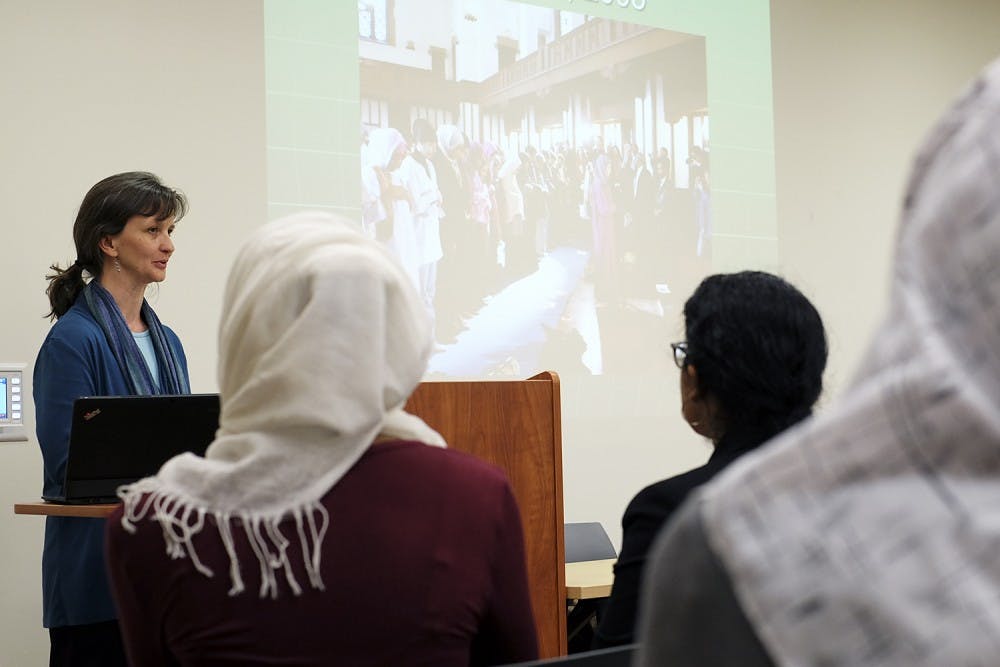On Tuesday, Hammer spoke about Muslim women, Islamophobia and resistance as the final part of the Muslim Student Association’s teach-in series.
She began her speech by addressing the complications of the definition of “Islamophobia”.
“What I find most misleading about it is that calling something a phobia makes it sound like it just somehow happens to people,” Hammer said.
She said there is a problem with American misconceptions of Islam, referencing recent opinion polls that said many Americans don’t believe Muslims are trustworthy.
“Those are staggering numbers. What’s interesting about this is those numbers have grown incrementally across the decade,” Hammer said, “It might mean that these Islamophobic systems are working.”
Hammer addressed polarized beliefs toward Muslim women that are common among Americans. One is that many Americans feel the need to liberate women from both the Islamic religion and Muslim men. Americans also lie on the opposite side of the spectrum and target Muslim women as the main source of hate crimes because they are easily distinguishable when wearing a hijab.
Hammer criticized both extremes, explaining that for those who want to “liberate” women, they must consider the recurring consequences when outsiders intervene with affairs unrelated to them.
To emphasize this belief, she referenced Lila Abu-Lughod’s novel, “Do Muslim Women Need Saving?”, which addresses the complications of foreign interference and military intervention to end oppression of Muslim women.



